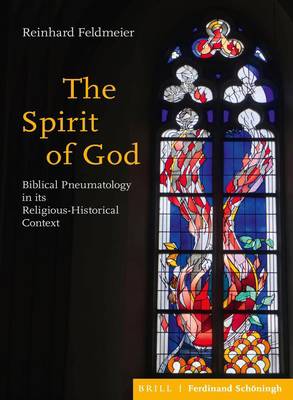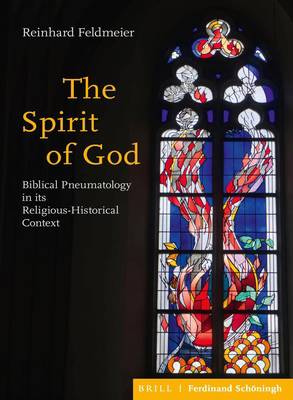
Bedankt voor het vertrouwen het afgelopen jaar! Om jou te bedanken bieden we GRATIS verzending (in België) aan op alles gedurende de hele maand januari.
- Afhalen na 1 uur in een winkel met voorraad
- In januari gratis thuislevering in België
- Ruim aanbod met 7 miljoen producten
Bedankt voor het vertrouwen het afgelopen jaar! Om jou te bedanken bieden we GRATIS verzending (in België) aan op alles gedurende de hele maand januari.
- Afhalen na 1 uur in een winkel met voorraad
- In januari gratis thuislevering in België
- Ruim aanbod met 7 miljoen producten
Zoeken
The Spirit of God
Biblical Pneumatology in Its Religious-Historical Context
Reinhard Feldmeier
Hardcover | Engels
€ 201,95
+ 403 punten
Omschrijving
Reinhard Feldmeier interprets biblical statements on the Spirit of God in the context of ancient religious and intellectual history, thereby revealing its fundamental significance for early Christianity and the ensuing need to "test the spirits". By holding the critical mirror of biblical testimonies up to the Spirit-forgetfulness of churches in the northern hemisphere and to the overemphasis of some churches in the Global South, his intention is to stimulate further theological reflection. The Holy Spirit is often granted only a minor role in many churches andtheologies. Yet in the Global South, where Christianity-in contrast to Europe and North America-is constantly expanding, the Spirit plays the leading role in Pentecostal and Neo-Pentecostal denominations, as well as in the charismatic renewal movements of the mainline churches. Reinhard Feldmeier engages that tension in the form of an exegetical study which interprets the biblical witnesses in the context of the religious and intellectual history of ancient Judaism and Graeco-Roman antiquity. Against this background, Feldmeier demonstrates both the fundamental significance of the Holy Spirit in early Christianity and the necessity of "testing the spirits" which it entailed. In this way, the author seeks to hold up the critical mirror of the biblical testimonies both to the Spirit-forgetfulness of churches in the northern hemisphere and to the overemphasis of some churches in the Global South and thus to provide both with impulses for further theological reflection.
Specificaties
Betrokkenen
- Auteur(s):
- Uitgeverij:
Inhoud
- Aantal bladzijden:
- 157
- Taal:
- Engels
Eigenschappen
- Productcode (EAN):
- 9783506760142
- Verschijningsdatum:
- 1/11/2021
- Uitvoering:
- Hardcover
- Formaat:
- Genaaid
- Afmetingen:
- 155 mm x 235 mm
- Gewicht:
- 438 g

Alleen bij Standaard Boekhandel
+ 403 punten op je klantenkaart van Standaard Boekhandel
Beoordelingen
We publiceren alleen reviews die voldoen aan de voorwaarden voor reviews. Bekijk onze voorwaarden voor reviews.









